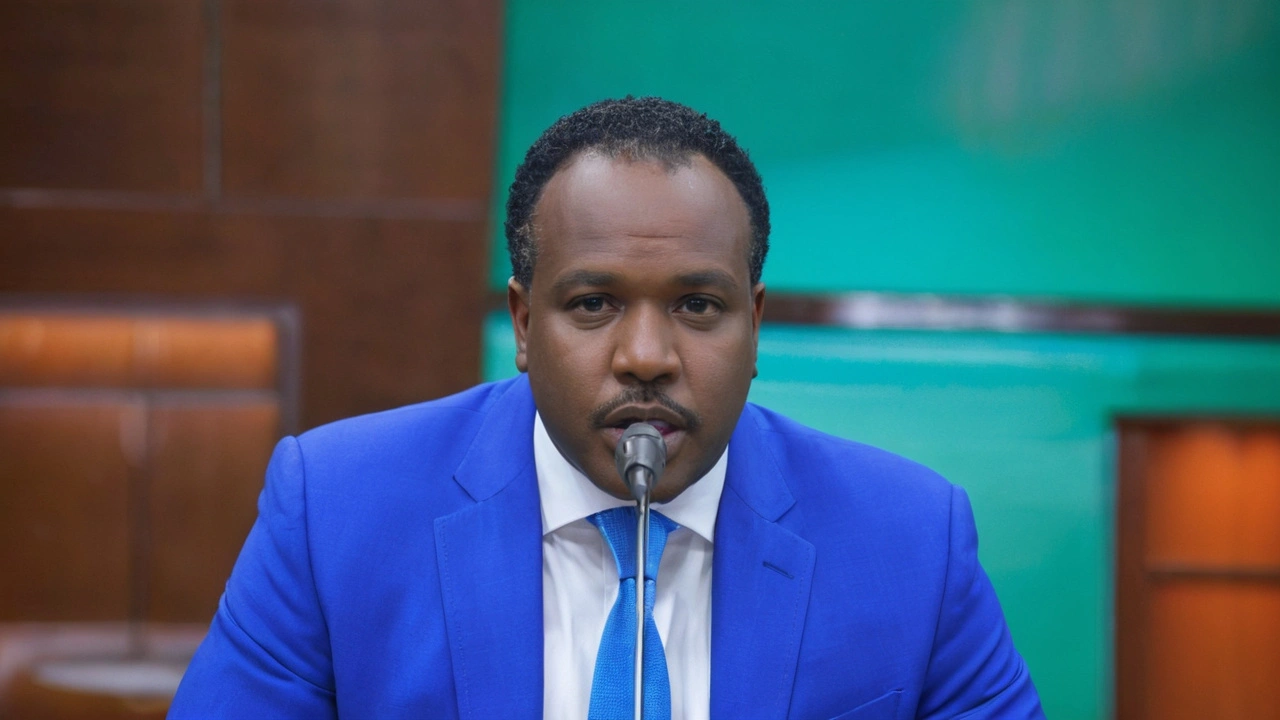Governor Oparanya Refutes Claims of Recording Statement with EACC Amid Graft Allegations

Governor Oparanya Refutes Claims of Recording Statement with EACC Amid Graft Allegations
Kakamega Governor Wycliffe Oparanya has recently been at the center of a swirling vortex of allegations concerning his supposed involvement in graft. The rumblings began when media reports suggested that the governor had been summoned by the Ethics and Anti-Corruption Commission (EACC) to record a statement regarding the accusations. However, Oparanya has come forward to firmly deny these claims, emphasizing that he has not recorded any statement with the anti-graft agency. This marks a significant moment, as public officials in Kenya continue to face intense scrutiny from the EACC, a body zealously committed to combating corruption.
Oparanya's Firm Denial
In his public statement, Governor Oparanya dismissed the allegations as baseless, asserting that he has maintained a clean record throughout his tenure in public service. He remarked that he had not been called upon by the EACC or any other investigative body to account for any graft allegations. His words conveyed a sense of indignation at what he perceives as attacks on his integrity. The governor pointed out that such unfounded allegations only serve to distract from the more vital issues at hand, particularly in his role overseeing the development and welfare of Kakamega County.
Oparanya's defense also serves to highlight his commitment to good governance. He stated unequivocally that his administration prioritizes transparency and accountability, and he has upheld these values since his first day in office. He expressed his confident belief that his record speaks for itself, showcasing numerous achievements under his leadership that have transformed Kakamega into a beacon of progressive governance.
A Climate of Intense Scrutiny
The controversy surrounding Governor Oparanya's alleged graft case is set against a broader backdrop of the EACC's vigorous campaign to clamp down on corruption within Kenya's public sector. In recent years, the commission has ramped up its efforts to bring corrupt officials to book, conducting a series of high-profile investigations and prosecutions. Oparanya's denial is thus part of a larger narrative where numerous officials find themselves facing accusations and inquiries, often leading to protracted legal battles and public speculation.
It's not uncommon for rumors and allegations to emerge in such an environment. The governor’s firm denial aims to put an end to the speculation and refocus efforts on his developmental agenda for Kakamega County. Yet, the EACC's continued vigilance means that public officials are constantly under the microscope, affirming the commission's stance that no one is above the law.
Commitment to Good Governance
Governor Oparanya underscored his administration's dedication to the principles of good governance. He reaffirmed their focus on transparency, outlining various policies and mechanisms put in place to ensure accountability in the county's operations. For instance, he mentioned the introduction of the County Integrated Development Plan (CIDP), which is used as a blueprint for all county projects and has opened up government operations to public scrutiny.
Furthermore, Oparanya highlighted the stringent auditing processes that his administration undertakes to maintain financial integrity. These audits, conducted both internally and by independent bodies, ensure that public funds are utilized effectively and openly. The governor also pointed to the participatory budgeting process, which allows citizens to have a say in how their resources are allocated and spent, ensuring that the development agenda remains people-centric.
Championing Development Despite Challenges
Despite the shadow of these allegations, Governor Oparanya remains focused on his mission to drive development across Kakamega County. His administration has launched several landmark projects aimed at improving infrastructure, healthcare, education, and agriculture. For instance, the governor mentioned the Kakamega Teaching and Referral Hospital, which has become a hub for top-notch medical services in the region. Additionally, the county government has invested heavily in road construction and maintenance, which has improved connectivity and spurred economic growth in rural areas.
The governor also emphasized his administration's support for education, with numerous programs geared towards providing scholarships, bursaries, and better school facilities. In agriculture, another key sector for Kakamega, Oparanya's policies have aimed at boosting productivity and supporting farmers through subsidized inputs and modern farming techniques.
An Eye on the Future
As the controversy continues to simmer, Oparanya remains adamant that his integrity will prevail. He sees the current challenges as both a test and an opportunity to showcase his administration's unwavering commitment to ethical governance and effective leadership. The governor remains optimistic about the future, believing that the truth will outlive the allegations and that his legacy will be defined by the tangible progress made under his stewardship.
While the EACC has its work cut out in rooting out corruption, the broader Kenyan public continues to watch closely. The actions and statements of leaders like Oparanya have a significant impact on public perception and trust in governance. As the nation grapples with its anti-corruption crusade, the balance between suspicion and accountability will remain a delicate yet crucial facet of Kenya's political landscape.